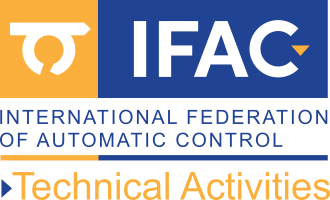SENSYS2025
- https://tc.ifac-control.org/8/3/upcoming-events/sensys2025
- SENSYS2025
- 2025-06-18T00:00:00+03:00
- 2025-06-20T23:59:59+03:00
- When Jun 18, 2025 to Jun 20, 2025 (Europe/Helsinki / UTC300)
- Where Bari (IT)
- Web Visit external website
-
Add event to calendar
iCal
The SENSYS 2025 workshop is set against the backdrop of the rapidly evolving landscape of smart energy systems. As the global demand for clean and efficient energy solutions intensifies, particularly in urban environments, the role of advanced decision and control techniques becomes increasingly important. These techniques are essential not only for optimizing energy use, but also for ensuring the sustainability of our energy infrastructures.
Smart grids and smart cities represent the backbone of this transformation. The workshop will explore the interplay between these systems and the advanced methodologies that drive their efficiency and sustainability. Topics such as distributed and decentralized control, wide-area monitoring, and intelligent control in power grids will be central to the discussions. Moreover, the flexibility of virtual power plants, energy market design based on game theory, and transactive control will also be key focus areas, highlighting the innovative approaches needed to manage modern energy systems.
The workshop will emphasize the importance of fault detection, supervision, and safety measures to maintain reliable energy systems. Participants will have the opportunity of examining the modeling and control of prosumer resources, the smart design and control of energy storage systems, and the role of artificial intelligence in control systems. Non-linear dynamic modeling, multi-objective optimization, and uncertainty management will be explored as critical tools for effective decision-making in energy management.
The integration of agent-based and participatory modeling will be discussed, stressing the significance of stakeholder involvement in developing sustainable energy solutions. Practical applications will span across various domains, including smart grids, districts, buildings, community-based energy systems, green hydrogen integration, and the electrification of transport and mobility.
Finally, the workshop will address the role of real-time monitoring and control in industrial processes and the synergistic relationship between automation, systems engineering, and sustainable development. An open invited session will focus on the modeling and control of environmental systems, highlighting the intersection between smart energy systems and natural resource management. Through these discussions, the workshop aims to foster innovation, collaboration, and the development of cutting-edge solutions that will shape the future of smart energy systems globally.

